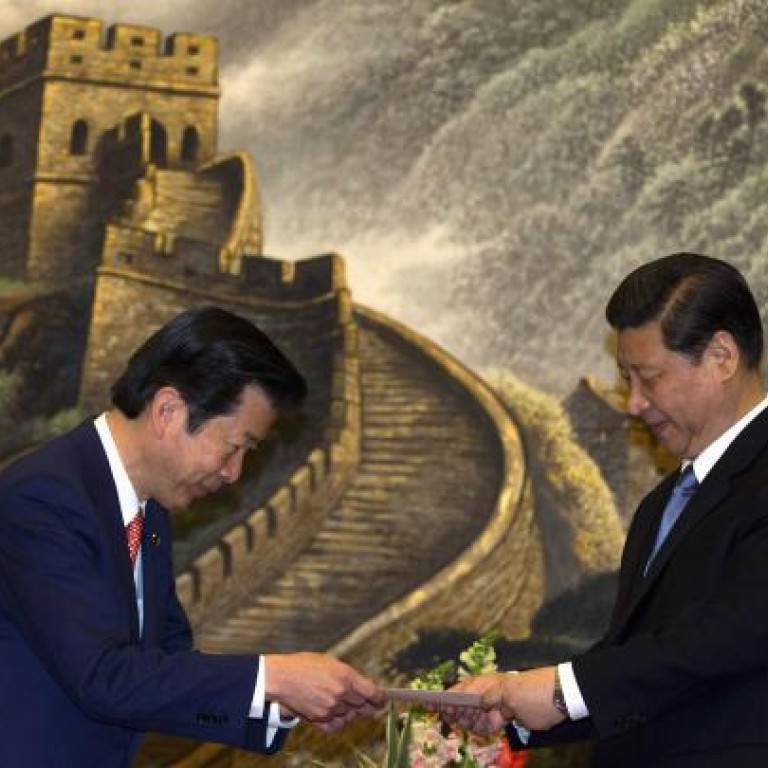
Shinzo Abe should seize chance for Diaoyus dialogue
Changes of leadership in China and Japan provide a window for initiatives to cool rising tensions over the Diaoyu Islands, and put relations between the world's second- and third-largest economies back on track. Until now the moment had looked like being lost. New Japanese prime minister Shinzo Abe has adopted a tough approach to China, and both nations have asserted their claims by sending ships and planes to the uninhabited islands, known as the Senkakus in Japan, raising fears of armed clashes.
However, Friday's meeting in Beijing between new Communist Party leader Xi Jinping and Japanese special envoy Natsuo Yamaguchi was more significant than expected, raising hopes of an easing of tension after a weeks-long war of words between the two countries.
It is the first time China's new leader has commented publicly on Sino-Japanese ties. Although he expressed concerns about Abe's hawkish stance, his general tone was quite mild.
Yamaguchi delivered a letter from Abe calling for more communication between Tokyo and Beijing. Xi reciprocated by calling for dialogue to resolve the territorial dispute, and saying he would seriously consider a summit meeting with Abe if a proper environment were created for it. Ultimately there is no better way to defuse the tension and put ties back on track than for the leaders of the two nations to meet for talks.
Beijing left it to the Japanese side to mention the possibility of a summit, while omitting it from its own statement on the meeting. This avoided upsetting Chinese nationalists who favour tough action against Japan, while sending a more positive message to moderate elements in Tokyo political circles. These include Yamaguchi, head of the New Komeito Party, a relatively dovish coalition partner in Abe's government.
Xi said both sides should display the political wisdom of previous generations of leaders in overcoming difficulties and advancing relations. Xi seems to be referring to late paramount leader Deng Xiaoping's suggestion the disputes be set aside and left to future generations. Under current circumstances, it would be in the best interests of both countries to follow the wisdom of Deng.
China and Japan have too much to lose through stoking tensions. Xi has opened the door to Abe's appeal for more communication. Abe should seize the opportunity for constructive dialogue.
